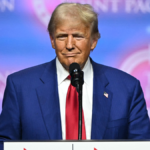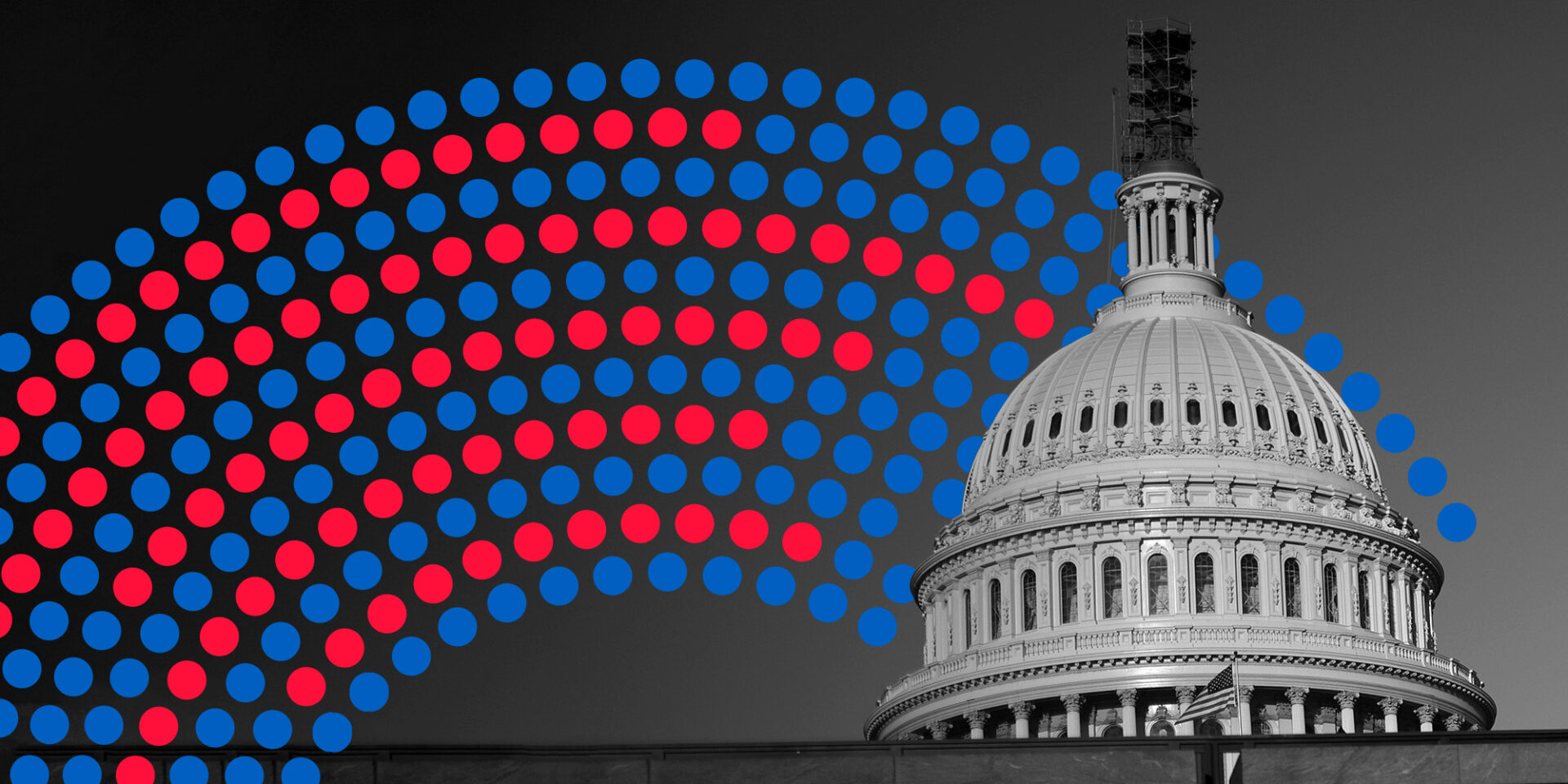The Intercept
For decades, the American Israel Public Affairs Committee had been an influential presence on Capitol Hill, working behind the scenes to lobby politicians and their staffers in support of Israel. But ahead of the 2022 midterm elections, AIPAC made a decision that would fundamentally alter its purpose and the contours of American politics.
After 60 years of issues-based lobbying, AIPAC for the first time opted to spend directly on campaigns. Flush with millions of dollars from loyal donors, among them Republican billionaires and megadonors to former President Donald Trump, AIPAC embraced a new strategy. It would use its vast funds to oust progressive members of Congress who have criticized human rights abuses by Israel and the country’s receipt of billions of U.S. dollars in military funding.
Just two years after it started pouring money into campaigns, AIPAC has become one of the largest outside spenders in congressional elections. The Intercept has chronicled AIPAC’s power through coverage of individual races, but never before has AIPAC’s massive outflow of money been analyzed in sum. This project uses records from the Federal Election Commission — submitted by the lobbying group’s federal political action committee, AIPAC PAC, and its super PAC, United Democracy Project — to map how much money has been spent on behalf of Israel, where these groups are doling out money, and what impact those funds are having on the balance of power in Congress.
AIPAC did not respond to a request for comment.
After each of its wins this cycle, AIPAC posted to X: “Being pro-Israel is good policy and good politics!”
While it’s true that AIPAC won the overwhelming majority of races it waded into, the picture that emerges from AIPAC’s paper trail is more complex.
The Big Picture
When it rolled out its new strategy in the 2022 election cycle, AIPAC found immediate success. The lobbying group and another pro-Israel group, Democratic Majority for Israel, defeated Reps. Andy Levin, D-Mich., and Marie Newman, D-Ill., who were outspoken in their criticism of unconditional U.S. military funding for Israel. The campaign to defeat Levin marked a significant push from AIPAC to repress criticism of Israel even from Jewish members of Congress.
AIPAC has spent money on more than 80 percent of the 469 seats up for reelection this year.
Ahead of the 2024 cycle and amid growing public outrage over Israel’s war on Gaza, AIPAC made a bold pronouncement: Through its United Democracy Project arm and AIPAC PAC, it would spend $100 million on elections, about one-sixth of what outside groups spent on the 2020 presidential election.
There are few congressional races that AIPAC sat out this year. Of the 469 seats up for reelection this year, AIPAC has spent money on more than 80 percent: 389 races in total. AIPAC has sought influence over 363 seats in the House and 26 in the Senate.
Of the 389 candidates AIPAC funded, 57 did not face a primary. Of the primary elections that did take place, 88 candidates had no opponent.
The size of AIPAC’s war chest means it can pick and choose the races in which it is most likely to succeed — boosting its image as a kingmaker and its influence among candidates and members, while simultaneously hiking up the cost of criticizing U.S. policy toward Israel.
Funding Both Parties
AIPAC’s approach to electoral spending is bipartisan. The group has funded Republican, Democrat, and independent candidates alike. AIPAC PAC supported 233 Republicans with a total of more than $17 million in funds, 152 Democrats who received more than $28 million in sum, and three independents: Sens. Joe Manchin of West Virginia, Kyrsten Sinema of Arizona, and Angus King of Maine, who got just under $300,000 between them. (Spending not covered in this analysis includes AIPAC PAC contributions that were refunded in 2023 or 2024 or those that went to other PACs and political organizations, such as the National Republican Senatorial Committee or the centrist Democratic nonprofit fundraising platform Democracy Engine.)
AIPAC PAC also gave more than $3 million to party committees and organizations on both sides of the aisle including the NRSC, Democratic Senatorial Campaign Committee, Jeffries Majority Fund, and Democracy Engine.
AIPAC spent this year on races in every state except Ohio (although the group funded several Ohio candidates in 2023). Among the places it spent most were New York and California, predictable big-money locations with two of the largest delegations in Congress. But outliers like Missouri and Maryland came into play this cycle as United Democracy Project funneled cash to back its preferred candidates. Missouri, where AIPAC spent the second-most on races this cycle, has only eight congressional seats but received more than $11.7 million in spending on just one race in which AIPAC-backed Wesley Bell ran against Rep. Cori Bush Bush, D-Mo. In Maryland, which also has just eight congressional seats, AIPAC-backed candidate Sarah Elfreth drew $4.2 million in AIPAC money this cycle.
So far, the spending has had its desired effect. The number of members of Congress willing to support conditioning aid to Israel or criticizing human rights abuses has shrunk as AIPAC has increased its electoral spending and put it to work targeting progressive candidates and lawmakers.
Key Races
While AIPAC supported more Republicans than Democrats, it spent more on its favored Democratic candidates — mostly on Bell and George Latimer, run by AIPAC in primaries against outspoken progressives and Squad members Bush and Jamaal Bowman, D-N.Y.
AIPAC-backed candidates are generally pro-Israel, but their staunchness varies from lawmakers like Rep. Ritchie Torres, D-N.Y., a major AIPAC recipient and one of the most vocal pro-Israel voices in Congress, to Rep. Ryan Zinke, R-Mont., who proposed a bill to “deport” Palestinians from the U.S. On the other end of the spectrum are less vocal candidates like the AIPAC and UDP-backed Elfreth, who won the Democratic primary in Maryland’s 3rd Congressional District where the topic of Israel — and Elfreth’s stance on it — barely came up in the race.
Through an additional $41.9 million in spending on independent expenditures like ads and get-out-the-vote measures by its super PAC, United Democracy Project, AIPAC made major investments in two additional House races. UDP spent just under half a million dollars against Democratic candidate Kina Collins in her third primary against three-decade incumbent Rep. Danny Davis, D-Ill. The super PAC did not spend for Davis or any other candidate in the race.
UDP also spent $167,000 against Rep. Thomas Massie, R-Ky., and did not back another candidate in the Republican primary. Massie won with 76 percent of the vote and is running unopposed in November.
One of AIPAC’s only losses this cycle came after it poured out $5.1 million in a bid to defeat California congressional candidate Dave Min in a race in which Israel was hardly a major issue. After he won the race, Democratic Majority for Israel PAC endorsed Min in September.
Strategy and Allies
AIPAC’s strategy is more than just spending to boost its preferred candidates. A major part of AIPAC’s approach is spending big against candidates it wants out of Congress. In the two highest-profile cases this cycle, AIPAC spent $30 million on ousting two members of the progressive Squad — Bowman and Bush — leading to two of the most expensive Democratic House primaries in history.
Its embrace of this tactic dates back to the 2020 Democratic presidential primary, when an offshoot, Democratic Majority for Israel, led by former AIPAC consultant and longtime Democratic pollster Mark Mellman, first went negative against Vermont Sen. Bernie Sanders. AIPAC helped fund Democratic Majority for Israel ads attacking Sanders, after the Jewish senator and strong critic of Israel’s human rights abuses called for conditioning military funding to Israel.
The groups share commonalities beyond their mutual focus on Israel. Both AIPAC and Democratic Majority for Israel have shared donor rolls; 11 of DMFI’s board members have worked with, addressed or donated to AIPAC; and Mellman has consulted for at least two other AIPAC-affiliated groups. In a statement to The Intercept, Democratic Majority for Israel spokesperson Rachel Rosen said the group “is completely separate from, and independent of, AIPAC and any other organization. We have our own Board, leadership and staff, none of whom overlap with AIPAC. We advocate for different policies.”
Rosen distanced DMFI from the Israeli government and said the group had been critical of Prime Minister Benjamin Netanyahu: “For example, we support a two-state solution, and we have been critical of the Netanyahu government’s actions including on settlements, judicial reform and the composition of its coalition. Our sister organization, DMFI PAC, only supports Democrats, and has endorsed different and opposing candidates in the current election cycle.”
AIPAC’s debut in direct political spending during the 2022 cycle coincided with an increase in other pro-Israel spending from groups with close AIPAC ties. Mainstream Democrats PAC, the super PAC backed by top Democratic donor and LinkedIn co-founder Reid Hoffman, ramped up spending, thanks in part to support from DMFI PAC.
AIPAC, DMFI PAC, and Mainstream Democrats PAC were also instrumental in defeating Democratic Ohio state Sen. Nina Turner’s congressional bid that cycle.
What Next?
AIPAC spent broadly in the 2024 cycle, but it also had very specific aims — among them recruiting and backing candidates to run against Bush and Bowman. The lobbying group also tried and failed to recruit a challenger to Rep. Summer Lee, D-Pa., The Intercept reported, and she easily won her primary election in April.
AIPAC’s attacks on Bowman and Bush ultimately proved successful, with both losing in two of the most expensive House Democratic primary elections in history to candidates bankrolled by more than $29 million in AIPAC dollars.
AIPAC has proven that it can direct huge sums of of money to oust insurgent members of Congress and candidates — removing from the halls of power politicians who aren’t merely critics of U.S. policy toward Israel, but are also supporters of economic, policing, health care, and labor policies that are at odds with the interests of the lobbying group’s wealthy donors. AIPAC has shown that it has the power to reach almost every seat in Congress — and when it takes a shot, it seldom misses. So what comes next?
“AIPAC — like every other corporate super PAC — represents the most broken parts of our campaign finance system that gives a handful of billionaires a vehicle to advance their interests at the expense of millions of everyday people,” said Usamah Andrabi, a spokesperson for Justice Democrats, which has recruited and backed candidates against AIPAC attacks. “If we want to stop rising costs, protect our communities, and prevent another endless war abroad then we need to take big money out of politics once and for all.”
Data visualizations: Fei Liu
The post How Does AIPAC Shape Washington? We Tracked Every Dollar. appeared first on The Intercept.
Politics Read More
Author Profile
Latest entries
 HeadlinesOctober 25, 2024Trump declares Harris campaign is ‘imploding’ in tax cut-focused Vegas rally: ‘leading by so much’
HeadlinesOctober 25, 2024Trump declares Harris campaign is ‘imploding’ in tax cut-focused Vegas rally: ‘leading by so much’ HeadlinesOctober 24, 2024State senator dies following freak lawn mower accident
HeadlinesOctober 24, 2024State senator dies following freak lawn mower accident HeadlinesOctober 24, 2024Letter at center of Menendez brothers' bid for freedom called into question
HeadlinesOctober 24, 2024Letter at center of Menendez brothers' bid for freedom called into question HeadlinesOctober 24, 2024Ask a doctor: ‘Why are my ears ringing, and should I see a physician?’
HeadlinesOctober 24, 2024Ask a doctor: ‘Why are my ears ringing, and should I see a physician?’

